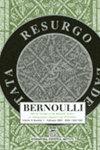Power enhancement and phase transitions for global testing of the mixed membership stochastic block model
IF 1.7
2区 数学
Q2 STATISTICS & PROBABILITY
引用次数: 3
Abstract
The mixed-membership stochastic block model (MMSBM) is a common model for social networks. Given an $n$-node symmetric network generated from a $K$-community MMSBM, we would like to test $K=1$ versus $K>1$. We first study the degree-based $\chi^2$ test and the orthodox Signed Quadrilateral (oSQ) test. These two statistics estimate an order-2 polynomial and an order-4 polynomial of a"signal"matrix, respectively. We derive the asymptotic null distribution and power for both tests. However, for each test, there exists a parameter regime where its power is unsatisfactory. It motivates us to propose a power enhancement (PE) test to combine the strengths of both tests. We show that the PE test has a tractable null distribution and improves the power of both tests. To assess the optimality of PE, we consider a randomized setting, where the $n$ membership vectors are independently drawn from a distribution on the standard simplex. We show that the success of global testing is governed by a quantity $\beta_n(K,P,h)$, which depends on the community structure matrix $P$ and the mean vector $h$ of memberships. For each given $(K, P, h)$, a test is called $\textit{ optimal}$ if it distinguishes two hypotheses when $\beta_n(K, P,h)\to\infty$. A test is called $\textit{optimally adaptive}$ if it is optimal for all $(K, P, h)$. We show that the PE test is optimally adaptive, while many existing tests are only optimal for some particular $(K, P, h)$, hence, not optimally adaptive.混合隶属度随机块模型全局检验的功率增强和相变
混合隶属度随机块模型(MMSBM)是一种常用的社交网络模型。给定一个 $n$-node对称网络生成 $K$-社区MMSBM,我们想测试 $K=1$ 对 $K>1$。我们首先研究基于学位的 $\chi^2$ 检验和正统符号四边形(oSQ)检验。这两个统计量分别估计一个“信号”矩阵的二阶多项式和二阶多项式。我们导出了两个检验的渐近零分布和幂。然而,对于每一个测试,存在一个参数状态,其功率是不令人满意的。这促使我们提出一种功率增强(PE)测试,以结合两种测试的优势。我们表明,PE检验具有易于处理的零分布,并提高了两个检验的功率。为了评估PE的最优性,我们考虑一个随机设置,其中 $n$ 隶属向量从标准单纯形上的分布独立绘制。我们表明,全局测试的成功是由数量控制的 $\beta_n(K,P,h)$,这取决于群落结构矩阵 $P$ 均值向量 $h$ 关于会员资格。对于每个给定的 $(K, P, h)$,就叫测试 $\textit{ optimal}$ 如果它能区分两个假设 $\beta_n(K, P,h)\to\infty$。一个测试叫做 $\textit{optimally adaptive}$ 如果对所有人都是最优的 $(K, P, h)$。我们表明PE测试是最优自适应的,而许多现有的测试只对某些特定的最优 $(K, P, h)$因此,不是最优适应的。
本文章由计算机程序翻译,如有差异,请以英文原文为准。
求助全文
约1分钟内获得全文
求助全文
来源期刊

Bernoulli
数学-统计学与概率论
CiteScore
3.40
自引率
0.00%
发文量
116
审稿时长
6-12 weeks
期刊介绍:
BERNOULLI is the journal of the Bernoulli Society for Mathematical Statistics and Probability, issued four times per year. The journal provides a comprehensive account of important developments in the fields of statistics and probability, offering an international forum for both theoretical and applied work.
BERNOULLI will publish:
Papers containing original and significant research contributions: with background, mathematical derivation and discussion of the results in suitable detail and, where appropriate, with discussion of interesting applications in relation to the methodology proposed.
Papers of the following two types will also be considered for publication, provided they are judged to enhance the dissemination of research:
Review papers which provide an integrated critical survey of some area of probability and statistics and discuss important recent developments.
Scholarly written papers on some historical significant aspect of statistics and probability.
 求助内容:
求助内容: 应助结果提醒方式:
应助结果提醒方式:


